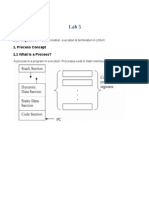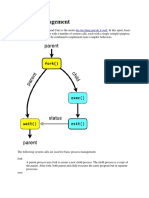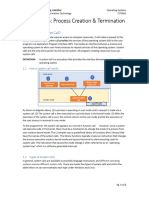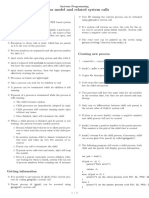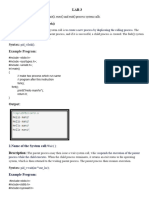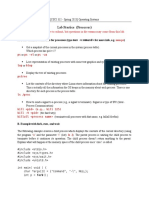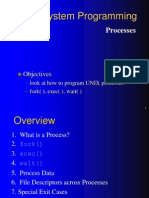0% found this document useful (0 votes)
13 views2 pagesAssignment 2 Os
This document outlines an assignment focused on process creation and execution in Unix-like systems using fork(), execvp(), and wait() system calls. It explains the functionality of each system call, provides a sample program demonstrating their use, and highlights the interaction between parent and child processes. The program includes error handling and showcases the execution of a specified command by the child process.
Uploaded by
himanipatil023Copyright
© © All Rights Reserved
We take content rights seriously. If you suspect this is your content, claim it here.
Available Formats
Download as DOCX, PDF, TXT or read online on Scribd
0% found this document useful (0 votes)
13 views2 pagesAssignment 2 Os
This document outlines an assignment focused on process creation and execution in Unix-like systems using fork(), execvp(), and wait() system calls. It explains the functionality of each system call, provides a sample program demonstrating their use, and highlights the interaction between parent and child processes. The program includes error handling and showcases the execution of a specified command by the child process.
Uploaded by
himanipatil023Copyright
© © All Rights Reserved
We take content rights seriously. If you suspect this is your content, claim it here.
Available Formats
Download as DOCX, PDF, TXT or read online on Scribd
/ 2







